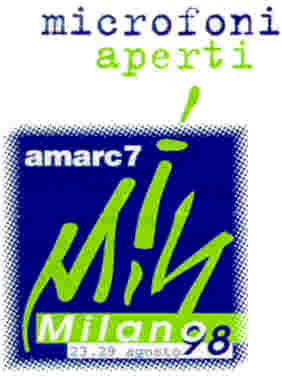amarc-1
[Date Prev][Date Next][Thread Prev][Thread Next][Date Index][Thread Index]
<amarc-1> Getting Here from There
[The following message was originally posted to the global knowledge list;
Kole Ade-Odutola forwarded it for reposting, and Don Richardson seconded
the repost. Kole's note was: "Someone's examples of what worked". And Don
asks to pass the word along about an upcoming conference in Guelph,
Ontario, Canada, 26-27 October 1998: "Partnerships and
Participation in Telecommunication for Rural Development: What Works and
Why" (http://www.snowden.org). -bda]
> From the perspective of someone who also manages projects in
> developing countries, I could not agree with you more
> regarding the power of email vs. terrible phone lines.
However, my perspective is somewhat different from the poor rural woman who
has difficulty reading and writing and who wants to use a phone to enhance
her small trading business. The Net is appropriate technology for my
management work in rural Egypt - it is an amazing asset. The phone is
appropriate technology for the poor rural woman who runs the coffee shop I
patronize in the village.
Yes, telephone systems are very poor in many places, but that does not mean
we have to live with this situation and abandon phones. In my own province
in Canada, we organized a coalition of farmer organizations and rural
deve't organizations to lobby the phone providers and the policy folks to
upgrade from antique analog to digital - MAINLY SO THAT PEOPLE COULD GET
ACCESS TO THE NET! We were successful in that the main telco is spending
$200,000,000 Cdn to upgrade the system in rural Ontario.
In Bangladesh the Grameen Bank got into the phone business with Grameen
Telecom to provide wireless phones to rural vilagers - phones first,
Internet later. In the Philippines, privatization and liberalization are
catalyzing some amazing improvements in affordable rural telephone systems.
Same in Mexico, Peru, Chile, Bolivia, Colombia, etc., etc.
Wireless telephone systems are relatively cheap these days, and with
processes of privatization and liberalization, many phone systems in
developing countries are indeed improving with a variety of private sector,
public sector and civil society partnerships. These kinds of developments
need our support and encouragement. Where you can get a decent dial-tone,
you can easily dial-up to the Net.
Let's be realistic about the Internet. If most of the world has never made
a phone call, imagine the stats on email. I think it is a question of the
felt needs at the grassroots level.. Ask a poor rural villager whether
she/he would like access to a telephone or email.
I still remain a big champion of the Internet, however it is a tool that
works well for intermediary organizations, NGOs, CBOs, donors, gov't
offices, educational institutions, etc. For most of civil society, the
phone is still the killer app of the telecom scene.
And, as phone systems improve (as we learned here in Canada), Internet
access improves too.
Let's base our recommendations of technologies on the felt needs at the
grassroots level, and appropriateness of the tool for meeting those needs.
Let the needs determine the tool, and enable the people involved to
articulate their needs. In some cases the Net will be appropriate, in most
others, we'll be talking on the phone.
Cheers,
Don Richardson
Director
Don Snowden Program for Development Communication
Rural Extension Studies
University of Guelph
Guelph, Ontario, Canada
++++++++++++++++++++++++++++++++++
AMARC 7 Foro Virtual Forum Virtuel
http://www.amarc.org/amarc7
to unsubscribe / pour se desabonner / para abandonar :
e-mail "unsubscribe amarc-1 " to: [email protected]
Tecnical realisation, scripting and archiving: Worldcom
Foundation
English: [Virtual
Forum Index] [Search
Forum archives]
Français: [Index
du Forum Virtuel] [Chercher
dans les archives du Forum]
Español: [Índice
del Foro Virtual] [Buscar
en los archivos del Foro]
